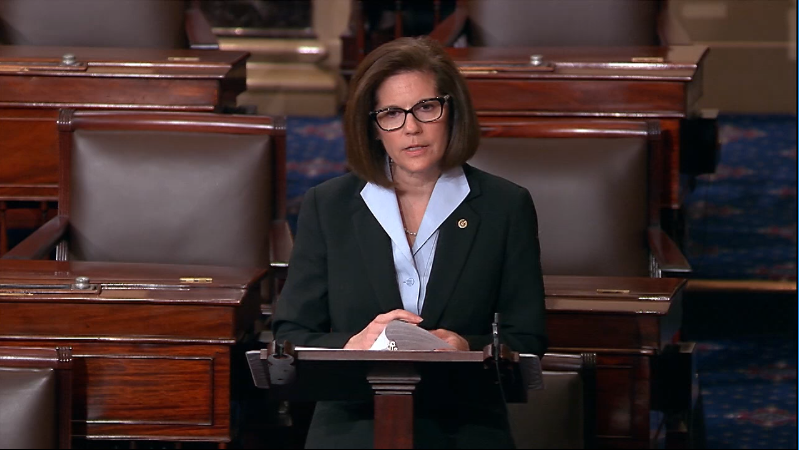Washington, D.C. – U.S. Senator Catherine Cortez Masto (D-Nev.) spoke on the Senate floor today recognizing Equal Pay Day, which marks the number of additional days American women must work to earn what their male counterparts earned in the previous year. She highlighted the economic impact of pay disparity and emphasized the even greater wage gaps that exist for women of color, women with disabilities and transgender women. Below are her remarks as prepared for delivery.
Senator Cortez Masto’s remarks are available in both AUDIO AND VIDEO FORMAT. You may download video of the speech HERE and audio HERE.
Today we are four months, or 92 days to be exact, into the new year.
Today is the day when American women “catch up” in earnings to what their male counterparts made last year.
In 2019, almost 100 years after women won the right to vote and 56 years after the passage of the Equal Pay Act, it still takes women 15 months to earn what a man makes in 12.
That’s the significance of today, Equal Pay Day.
Women make up half the U.S. workforce.
They are small business owners, entrepreneurs, doctors, lawyers and community leaders.
Yet, women in the United States still make an average of 80 cents for every dollar earned by a man.
And for women of color, women with disabilities and transgender women, the gap is even more jarring.
Black women earn an average of 61 cents on the dollar, Native American women earn 57 cents and Latinas earn 53 cents for every dollar the average white man makes.
This means that Latinas, who face the highest pay gap in the country, must keep working until November 20th of this year in order to earn what their white male colleagues made in 2018.
Women with disabilities are paid an average of 83 cents for every dollar a man with a similar disability makes at a full time job, and transgender women can expect their average yearly earnings to fall by almost one-third after their transitions.
In 2019, this is still the reality for American women. These women are often the sole breadwinners for their families. This type of systemic discrimination has no place in our country, and is having a negative economic impact on families and communities.
As long as the wage gap exists, women face unfair barriers to success and have to fight hard for economic security for themselves and their families.
Full-time working mothers trying to provide for their families are paid, on average $16,000 less per year than fathers, threatening their ability to put food on the table or save for their children’s educations.
Older women are likely to have to work longer, by an average of ten years, than their male counterparts to make up their lifetime wage gaps and earn enough for a secure retirement.
And young women just entering the workforce can expect to see their wage gap grow, not shrink, over the course of their careers.
All of these factors hurt Nevada women, Nevada families, and our country. It undercuts American women’s ability to get ahead, provide for their families and save for retirement. In Nevada alone, women who are employed full time lose a combined total of nearly $5 billion each year due to the wage gap.
It is past time American women earn equal pay for equal work. Women in our country will no longer accept being held back.
As a Nevada Latina, it is my responsibility to use my seat at the table to ensure that future generations of women are able to have the support they need to succeed, so that their families can succeed. It’s time women receive the same paycheck as a man for doing the same job.
I’m fighting alongside a longtime leader for women in Congress, Senator Murray, as well as my Senate Democratic colleagues, to pass the Paycheck Fairness Act and provide women with the opportunities and resources they need to succeed.
I look forward to the day when equal pay for equal work is a reality for every woman in Nevada, and across the country.
America’s women are leading the economy of the future, they’re building the infrastructure that fuels commerce, developing the scientific breakthroughs that improve our way of life, driving political change and heading America’s companies – and we need more. That starts with ensuring equal pay for equal work.
Until we pass the Paycheck Fairness Act, I will continue to fight for women and their families to level the playing field for them. Because nothing less than their future is at stake.
###
